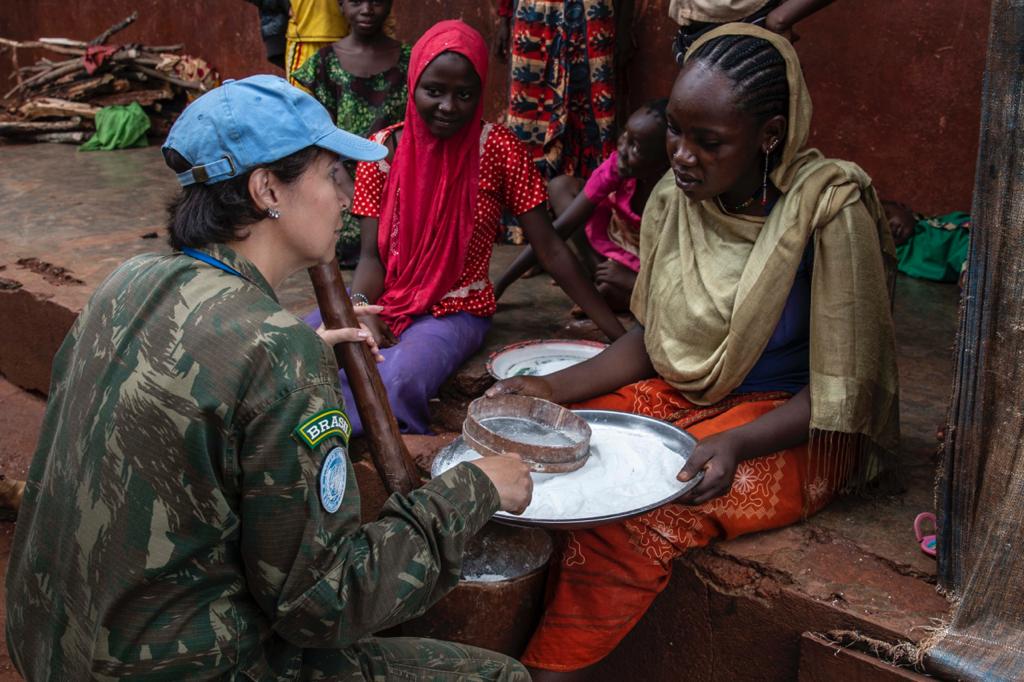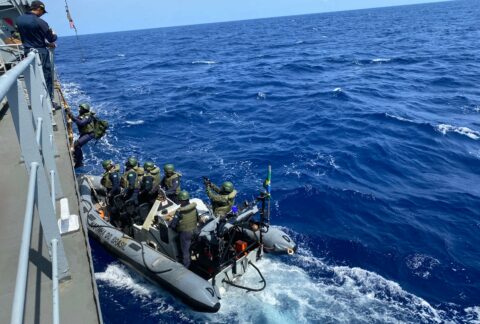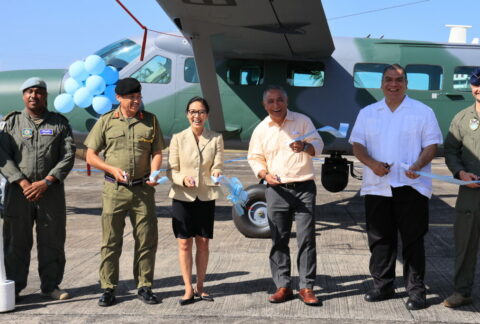Brazilian Navy (MB, in Portuguese) Commander Carla Monteiro de Castro Araújo received the United Nations (U.N.) Military Gender Advocate Award, for her work as a gender protection advisor, at the headquarters of the United Nations Multidimensional Integrated Stabilization Mission in the Central African Republic (MINUSCA). The officer shared the award with Indian Army Major Suman Gawani, who acted as a military observer for the U.N. Mission in South Sudan.
On May 29, during a virtual award ceremony, U.N. Secretary-General António Guterres highlighted the role of service members during operations against sexual violence against women and the protection of human rights. “The work of these women is inspiring, and it has made a great difference,” he said. “Their contribution confirmed and reinforced the relevance of women in these missions.”
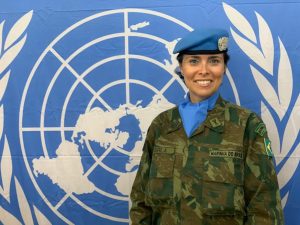
Diálogo spoke with Cmdr. Carla from the Central African Republic (CAR), where she is deployed until July 2020. “My performance in MINUSCA is a result of my work in the Brazilian Navy,” said the officer. “I have always worked with management and risk analysis. So, when I arrived at the mission, I assessed what was being done and what could be improved.” As a trained dentist, Cmdr. Carla worked for 17 years in the MB Marine Corps, at which time she developed her passion for humanitarian missions.
Expanding presence on the ground
Since they began their work in MINUSCA, the team led by Cmdr. Carla expanded the key personnel from 36 to 91 in 46 strategic points of the CAR, instead of the 10 initial locations. “If our service members were not motivated and participating, we wouldn’t have achieved so many changes on the ground,” she said.
The main goal, according to the officer, was to enable the key personnel to function as training multipliers. “More than 3,000 service members received training, out of a total of about 11,000 MINUSCA members,” said Cmdr. Carla. “We created French and English classes to minimize the language barrier and we tried to train service members of all nationalities from the countries that provided troops, to facilitate communication.”
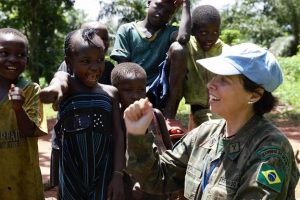
According to Cmdr. Carla, operations in the CAR are divided into two fronts: to work under better conditions, promoting more women in missions, and to implement mixed patrols, by including at least two women in the rounds. “Currently, women make up 5 percent of MINUSCA troops; while 26 percent of military observers are female.”
“We, women, have a natural ability to connect, to understand, to comfort, to support, and to work as agents of change for the local population,” said Cmdr. Carla. “When we are on the ground, working side-by-side with our male teammates, we are key to reaching long-lasting peace in a conflict region.”
Cmdr. Carla was happy to receive the award on the U.N.’s 75th anniversary, the 20th anniversary of the United Nations Security Council Resolution 1325 on Women, Peace and Security, and the anniversary marking 40 years of the presence of women in the MB. “Two Brazilians winning the same award in consecutive years generates great visibility. This may motivate other female service members to participate in humanitarian missions,” she concluded.

